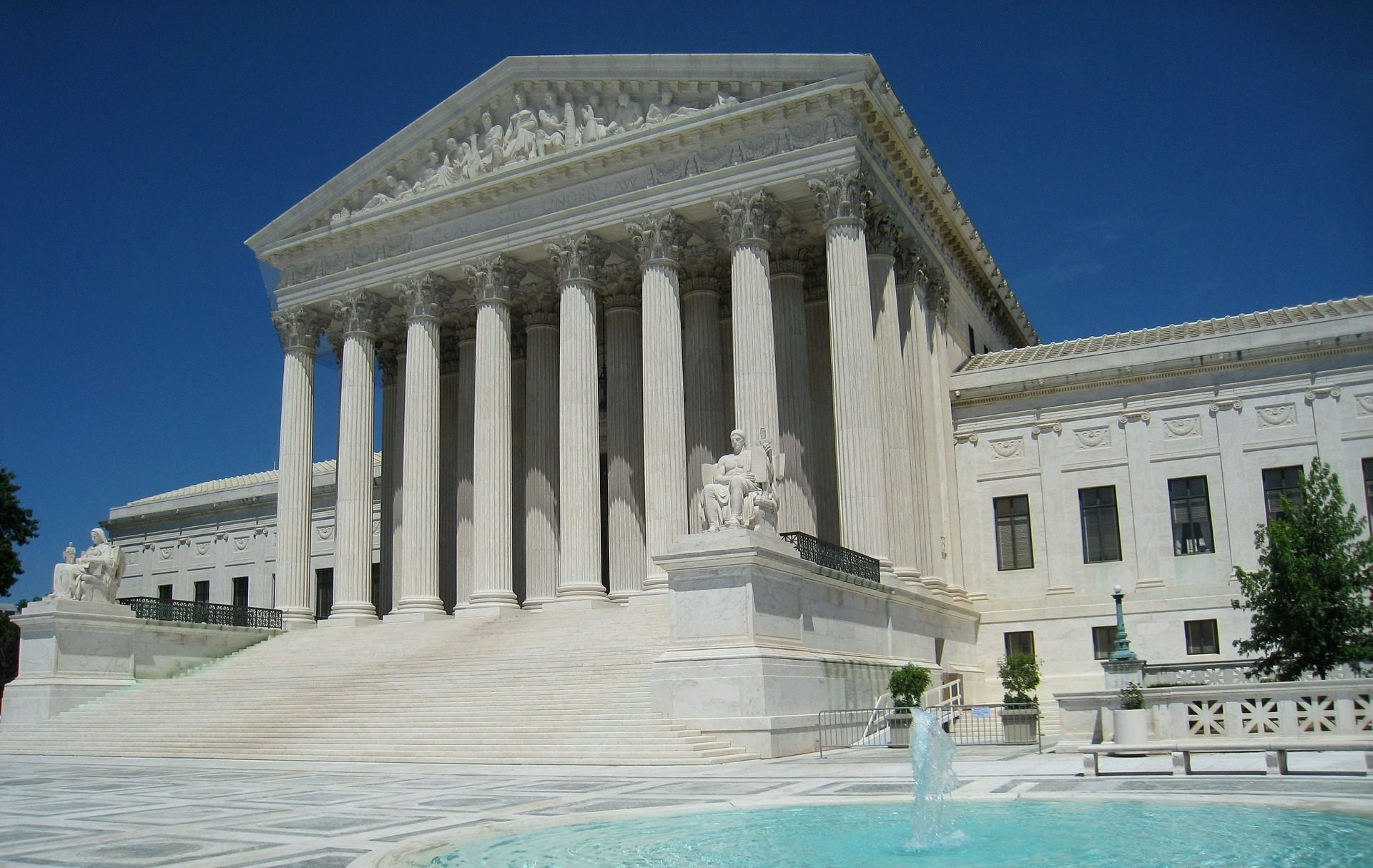What is the role of the Department of Justice in upholding the rule of law and protecting civil rights?

Ministry of Justice – Adamawa State - Source justice.adamawastate.gov.ng
Editor's Notes: The Department of Justice: Upholding the Rule of Law and Protecting Civil Rights published today date. This is an important topic to read because it provides an overview of the Department of Justice and its role in upholding the rule of law and protecting civil rights.
Our team has done extensive research and analysis to compile this guide, which will help you understand the Department of Justice and its role in upholding the rule of law and protecting civil rights.
Key Differences/Key Takeaways
| Department of Justice | |
|---|---|
| Mission | To uphold the rule of law and protect civil rights |
| Values | Integrity, accountability, excellence, and fairness |
| Goals | To ensure that the laws of the United States are fairly and effectively enforced and to protect the civil rights of all Americans |
Main Article Topics
- The history of the Department of Justice
- The structure of the Department of Justice
- The role of the Department of Justice in upholding the rule of law
- The role of the Department of Justice in protecting civil rights
- The challenges facing the Department of Justice
FAQs
This section provides answers to frequently asked questions regarding the Department of Justice's commitment to upholding the rule of law and protecting civil rights. The information provided here aims to clarify misconceptions and provide a better understanding of the department's role in safeguarding the nation's justice system.

Upholding Laws and Justice System, Vector Concept. Symbol of Fairness - Source www.dreamstime.com
Question 1: What is the Department of Justice's primary mission?
The Department of Justice serves as the United States' chief law enforcement agency, responsible for enforcing federal laws and defending the interests of the United States in both civil and criminal matters. Its mission encompasses upholding the rule of law, protecting the public from harm, and safeguarding individual civil rights and liberties.
Question 2: How does the Department of Justice ensure fairness and impartiality in law enforcement?
The Department of Justice is committed to administering justice fairly and impartially. Independent agencies such as the Office of Inspector General and the Civil Rights Division provide oversight and accountability to ensure that investigations and prosecutions adhere to the highest ethical and legal standards. Additionally, the department promotes community policing initiatives to foster trust and cooperation between law enforcement and the communities they serve.
Question 3: What measures are in place to protect civil rights?
The Department of Justice has established robust mechanisms to protect civil rights and prevent discrimination based on factors such as race, religion, gender, and national origin. The Civil Rights Division enforces federal civil rights laws, investigates and prosecutes hate crimes, and provides technical assistance to law enforcement agencies on civil rights matters.
Question 4: How does the Department of Justice address the issue of wrongful convictions?
The Department of Justice recognizes the importance of ensuring the fairness and accuracy of criminal convictions. The Conviction Integrity Unit and the Office of Legal Counsel collaborate to review cases of potential wrongful convictions, provide support to those seeking to vacate unjust sentences, and develop policies to prevent future miscarriages of justice.
Question 5: What role does the Department of Justice play in upholding the rule of law?
Upholding the rule of law is a cornerstone of the Department of Justice's mission. The department prosecutes those who violate federal laws, defends the United States in civil and criminal litigation, and provides legal advice to the government. By enforcing the laws fairly and impartially, the Department of Justice ensures that all individuals are treated equally under the law.
Question 6: How can the public stay informed about the Department of Justice's activities?
The Department of Justice maintains a comprehensive website that provides news releases, press conferences, speeches, and other information about its work. Additionally, the department actively engages with the public through social media platforms and community outreach programs.
The Department of Justice remains steadfast in its commitment to upholding the rule of law, protecting civil rights, and ensuring equal justice for all.
Visit the Department of Justice website for more information on its programs and initiatives.
Tips
The Department Of Justice: Upholding The Rule Of Law And Protecting Civil Rights offers the following tips to enhance understanding and promote compliance with civil rights laws.

Upholding the Rule of Law in Criminal Appeals - Regent University - Source globaljustice.regent.edu
Tip 1: Know Your Rights
It is crucial to understand your rights under the law. Familiarize yourself with the Constitution, the Bill of Rights, and relevant civil rights statutes. Knowledge empowers you to recognize and address potential violations.
Tip 2: Report Discrimination
If you experience or witness discrimination based on race, religion, sex, age, disability, or other protected characteristics, report it promptly to the appropriate authorities. Delay in reporting can hinder investigations and limit your options for recourse.
Tip 3: Seek Legal Assistance
Consider consulting with an attorney or legal aid organization if you believe your civil rights have been violated. Legal professionals can provide guidance, assist with filing complaints, and advocate for your rights.
Tip 4: Educate Yourself
Stay informed about civil rights issues by attending workshops, reading articles, and engaging in discussions. Knowledge fosters understanding and promotes a culture of respect and equality.
Tip 5: Be an Ally
Stand in solidarity with those who face discrimination. Attend protests, support organizations dedicated to civil rights advocacy, and challenge discriminatory practices within your own community.
Summary of key takeaways or benefits:
By following these tips, individuals can empower themselves, protect their rights, and contribute to a more just and equitable society.
Department Of Justice: Upholding The Rule Of Law And Protecting Civil Rights
The Department of Justice plays a critical role as the guardian of the rule of law and protector of civil rights. Its functions encompass a comprehensive array of essential aspects:
- Enforcing the Law: Ensuring adherence to federal statutes and regulations.
- Safeguarding Civil Rights: Protecting individuals from discrimination and upholding equal rights.
- Fighting Corruption: Investigating and prosecuting public corruption and fraud.
- Protecting National Security: Countering threats to the nation's security.
- Championing Justice: Seeking fair and just outcomes in all matters.
- Upholding the Rule of Law: Preserving the integrity of the legal system and ensuring fair administration of justice.
These aspects are interconnected and vital to the Department of Justice's mission. For instance, enforcing the law allows the Department to protect civil rights by ensuring that individuals are treated equally under the law. Fighting corruption bolsters national security by preventing threats from within the government. Championing justice promotes a society where the rule of law prevails and all individuals are treated with dignity and respect.

Safeguarding Justice and Upholding Rule of Law - Safeguarding Justice - Source www.studocu.com
Department Of Justice: Upholding The Rule Of Law And Protecting Civil Rights
The Department of Justice (DOJ) plays a vital role in upholding the rule of law and protecting civil rights in the United States. The DOJ is responsible for enforcing federal laws, investigating crimes, and providing legal advice to the President and other government agencies. In addition, the DOJ has a long history of protecting civil rights, including the right to vote, the right to equal protection under the law, and the right to due process.

Upholding Constitutional Principles and the Rule of Law in Sierra Leone - Source www.ilraj.org
One of the most important ways that the DOJ upholds the rule of law is by enforcing federal laws. The DOJ has a wide range of law enforcement responsibilities, including investigating and prosecuting crimes, enforcing civil rights laws, and protecting consumers from fraud. The DOJ also works with state and local law enforcement agencies to ensure that the law is enforced fairly and effectively.
In addition to enforcing federal laws, the DOJ also provides legal advice to the President and other government agencies. The DOJ's Office of Legal Counsel (OLC) is responsible for providing legal advice on a wide range of issues, including constitutional law, criminal law, and international law. The OLC's opinions are often relied upon by the President and other government agencies when making decisions about how to enforce the law.
The DOJ has a long history of protecting civil rights. The DOJ's Civil Rights Division is responsible for enforcing federal civil rights laws, including the Voting Rights Act, the Civil Rights Act of 1964, and the Americans with Disabilities Act. The Civil Rights Division also investigates and prosecutes cases of hate crimes, police misconduct, and other civil rights violations.
The DOJ's work to uphold the rule of law and protect civil rights is essential to the functioning of a democratic society. The DOJ's enforcement of federal laws helps to ensure that everyone is treated fairly under the law. The DOJ's provision of legal advice helps to ensure that the government is acting in accordance with the law. And the DOJ's protection of civil rights helps to ensure that everyone has an equal opportunity to succeed.
Table: Key Points
| Key Point | Description |
|---|---|
| The DOJ enforces federal laws. | The DOJ investigates and prosecutes crimes, enforces civil rights laws, and protects consumers from fraud. |
| The DOJ provides legal advice to the President and other government agencies. | The DOJ's Office of Legal Counsel provides legal advice on a wide range of issues, including constitutional law, criminal law, and international law. |
| The DOJ protects civil rights. | The DOJ's Civil Rights Division enforces federal civil rights laws, investigates and prosecutes cases of hate crimes, police misconduct, and other civil rights violations. |
Conclusion
The Department of Justice plays a vital role in upholding the rule of law and protecting civil rights in the United States. The DOJ's work is essential to the functioning of a democratic society.
One of the challenges facing the DOJ is the increasing complexity of the law. The DOJ must constantly adapt to new laws and regulations, as well as new technologies. Another challenge is the growing number of threats to civil rights. The DOJ must be vigilant in its efforts to protect civil rights from discrimination, hate crimes, and other threats.
Despite these challenges, the DOJ remains committed to upholding the rule of law and protecting civil rights. The DOJ's work is essential to ensuring that everyone is treated fairly under the law and that everyone has an equal opportunity to succeed.